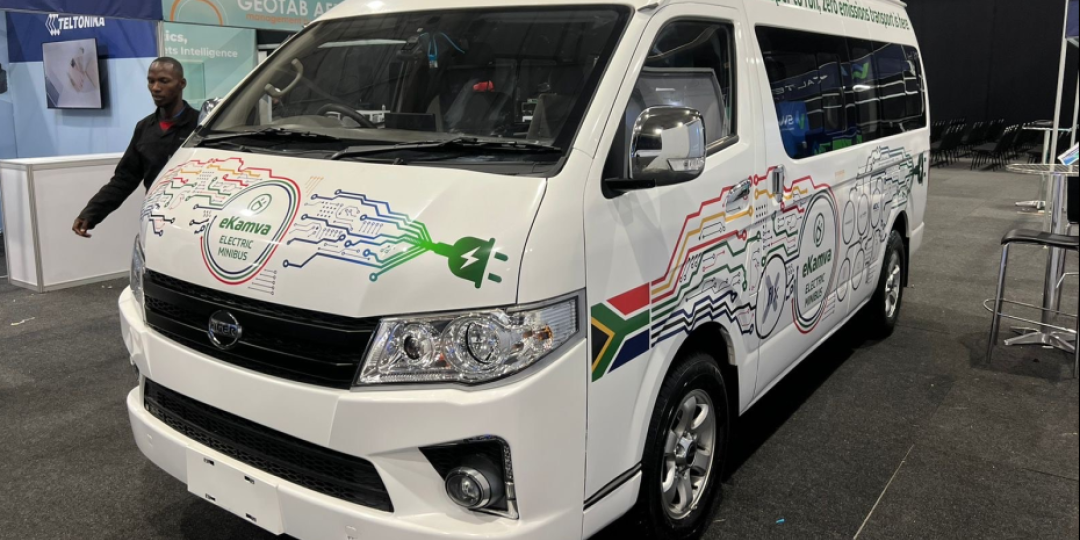Innovators in the electronic vehicle (EV) market believe South Africa has taken a bold step towards decarbonising public transport with the launch of the eKamva, named after ikamva, the isiXhosa expression for ‘the future’ or ‘into the future’.
Launched at the Smarter Mobility Africa Summit in Midrand, the eKamva is the product of a consortium led by fleet management innovator GoMetro, alongside integrated business model and charging infrastructure product provider, flx EV.
However, it is through wider collaboration that the two partnering companies believe they could revolutionise the taxi industry away from internal combustion engines.
According to GoMetro, “The partnership kicked off in 2023 to investigate and advance the feasibility of an electric minibus taxi in South African conditions by testing production vehicles in South Africa.
“The project team, consisting of GoMetro, Powerfleet (formerly MiX Telematics), HSW, ACDC Dynamics, and various entities within Stellenbosch University’s Faculty of Engineering, conducted rigorous and extensive testing in and around the town of Stellenbosch on existing taxi routes, using traditional minibus taxis.”
A statement released to coincide with the launch makes a case for benefits to be had all round, for the commuter market and South Africa’s overly large carbon footprint, by engineering a net-zero alternative for the country’s sprawling taxi industry.
“Although the fuel price has momentarily come down, commuters still feel the pinch of increasing transport fares,” GoMetro says.
“The typical South African commuter already spends up to 40% of their income on transport.
“At the same time, the minibus taxi sector is still struggling from the impact of the pandemic and ride-share apps on their operations.
“Minibus taxis transport millions of people in Southern Africa daily, contribute an estimated 30 million tonnes of carbon dioxide in South Africa alone, and consume two billion tonnes of fuel a year.”
GoMetro project leader Rudi Kriel said that urban eKamva taxi and shuttle fleets could reduce carbon dioxide emissions by 13.7 tonnes per vehicle per annum.
“Most taxis spend up to three hours a day between morning and evening peak hours at the ranks we have analysed, more than sufficient time to fast-charge an eKamva.”
But what about roll-out?
“The flx EV website will soon allow minibus taxi owners and operators to apply to be added to the waiting list for the solution,” the statement said.
Taxi fleet operators running eKamvas will, through the app, be able to manage their fleets, see each vehicle’s status and prepay for recharging, while drivers will be directed to their closest charging hub.
GoMetro said its EV partner was already in the process of developing charging hubs with partners across South Africa, with the first hubs slated for development in Century City and Stellenbosch in the next 12 months.
GoMetro CEO Justin Coetzee said they believed the eKamva “will spark an entirely new economic sector and is socio-economically very important for the automotive sector”.
“EVs have fewer breakdowns than internal combustion vehicles, and are cheaper to run, which leads to increased profitability per vehicle – and they have a longer life expectancy.
“EVs also reduce nitrous oxides, sulphur oxides and particulate matter in the air, improving community health, a major cost factor for the government.”
The 15-seat eKamva has a range of more than 200km between charges, fast-charges within 75 minutes via a 60kW DC charger, and slow-charges overnight for 10 hours. It delivers an estimated 40-70% cost savings over traditional vehicles on running costs, depending on the fuel price (inland vs coastal) and distance of the taxi route in question.
The eKamva is currently undergoing homologation – being certified compliant with local safety and vehicle standards – by the National Regulator for Compulsory Specifications.













